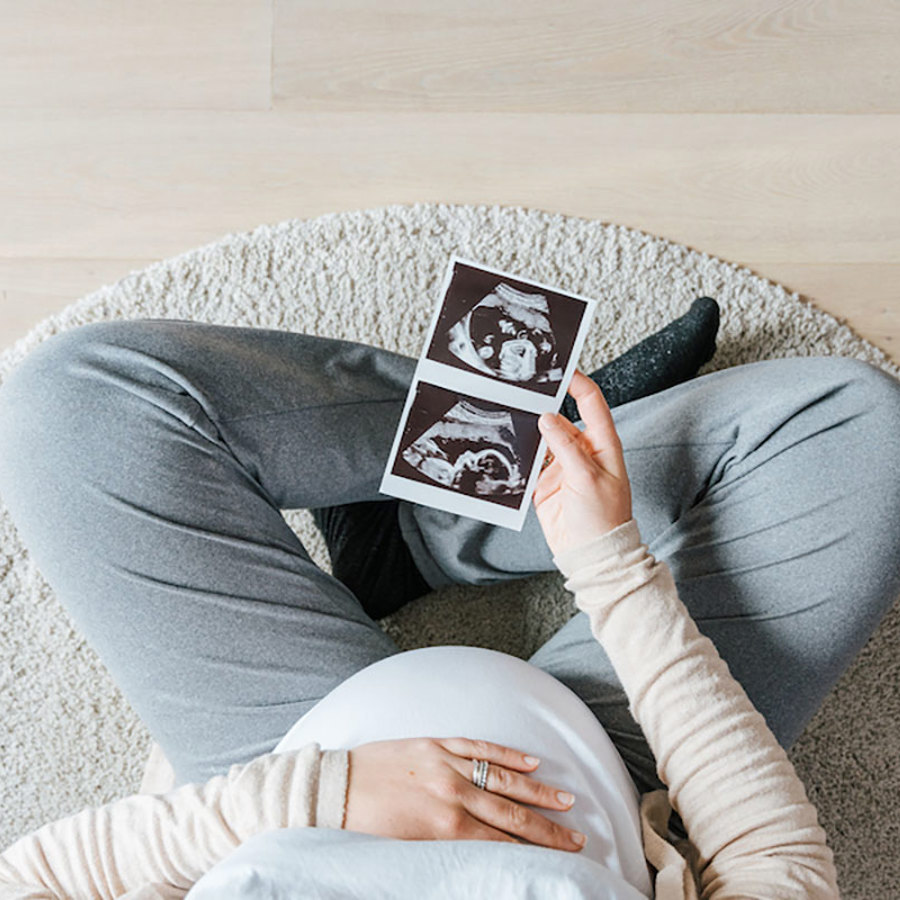
Can an amniocentesis determine future cancer risk?
November 9, 2004

- Related Topics:
- Cancer,
- Medical genetics,
- Genetic testing,
- Complex traits
A curious adult from Canada asks:
“I am on my 14th week of pregnancy. I have to decide whether to have an amniocentesis done. I’m 35 years old and consider myself very healthy, no genetic problems in my family. In my husband’s family there have been some cases of cancer. His dad had stomach cancer at 68, his grandfather had colon cancer at 85, and his aunt had breast cancer at 65 (all still alive). With the amniocentesis will I be able to know if my baby will have in the future anything like this?”
Editor’s note (6/02/2021): When this article was first published, there were no known cancer-causing genes that could be screened for prenatally. We now know of a very small number of cancer-causing mutations that can be screened for via amniocentesis, such as BRCA1/2 mutations. However, most cancers still cannot be screened for in this way.
For women 35 years and older, an amniocentesis is usually done to test for new genetic problems.
As a woman gets older, she is more likely to give birth to a baby with genetic diseases like Down syndrome. There are certain diseases that run in a family that can be tested for with an amniocentesis. These are usually simple, single-gene diseases like cystic fibrosis or sickle cell anemia.
The cancers you describe are neither simple nor caused by a single gene. All sorts of factors cause most cancers. With rare exceptions, genes are only one of these factors. Other things like how and where we live can have a big effect on whether or not we get cancer.
What all of this means is that for most cancers, genes only increase your chances of getting the disease, they don’t guarantee it. For the most part, scientists have little or no understanding of what these genes are or what they do.
In the future, as knowledge about our genes increases, we may be able to learn whether our kids will have an increased risk of certain cancers or not. For now, all we can do is watch what we eat, exercise, stay out of the sun, and try to not be around too many cancer-causing chemicals.
Amniocentesis is the most accurate way to check for whether a fetus has a disease like Down syndrome, Trisomy 18, or Turner’s syndrome. Some women are hesitant to have amniocentesis done because of the risk of miscarriage. The risk is about 1 in 200.

Another possibility is to take a blood test called a “triple-screen.” The triple-screen isn’t as accurate and doesn’t test for everything that an amniocentesis does, but there is no risk of a miscarriage either. Also, the triple-screen sometimes gets the result wrong. It misses some cases and misidentifies some normal babies as having a genetic disease. This is why if you get a positive result from the triple-screen test, doctors recommend that the result be confirmed with an amniocentesis.

Author: Dr. Barry Starr
Barry served as The Tech Geneticist from 2002-2018. He founded Ask-a-Geneticist, answered thousands of questions submitted by people from all around the world, and oversaw and edited all articles published during his tenure. AAG is part of the Stanford at The Tech program, which brings Stanford scientists to The Tech to answer questions for this site, as well as to run science activities with visitors at The Tech Interactive in downtown San Jose.
 Skip Navigation
Skip Navigation
